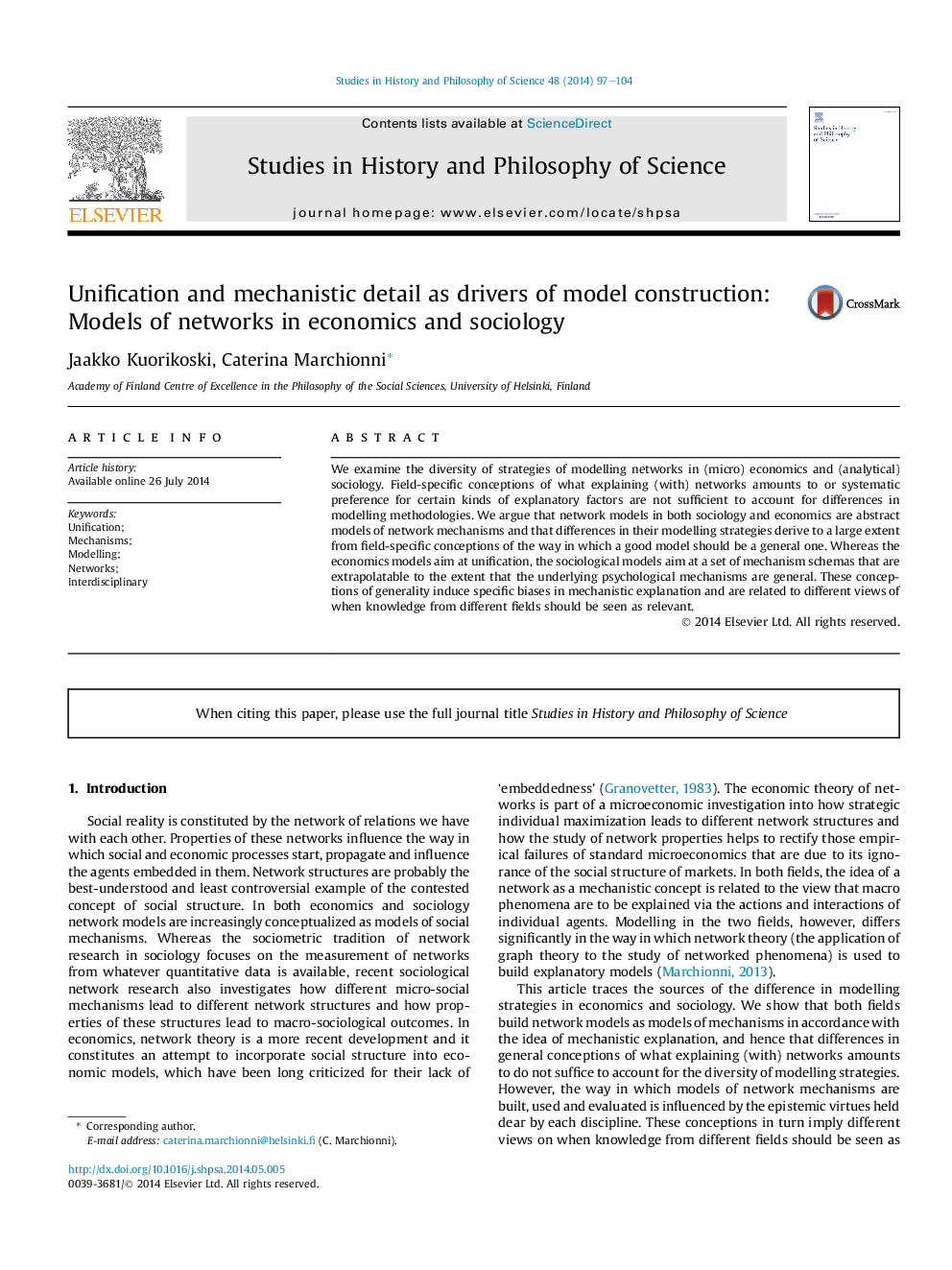| Article ID | Journal | Published Year | Pages | File Type |
|---|---|---|---|---|
| 1160861 | Studies in History and Philosophy of Science Part A | 2014 | 8 Pages |
Abstract
We examine the diversity of strategies of modelling networks in (micro) economics and (analytical) sociology. Field-specific conceptions of what explaining (with) networks amounts to or systematic preference for certain kinds of explanatory factors are not sufficient to account for differences in modelling methodologies. We argue that network models in both sociology and economics are abstract models of network mechanisms and that differences in their modelling strategies derive to a large extent from field-specific conceptions of the way in which a good model should be a general one. Whereas the economics models aim at unification, the sociological models aim at a set of mechanism schemas that are extrapolatable to the extent that the underlying psychological mechanisms are general. These conceptions of generality induce specific biases in mechanistic explanation and are related to different views of when knowledge from different fields should be seen as relevant.
Related Topics
Social Sciences and Humanities
Arts and Humanities
History
Authors
Jaakko Kuorikoski, Caterina Marchionni,
